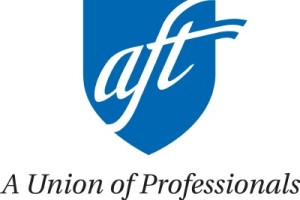The following was posted by By Alyssa Hadley Dunn on Washington Post – The Answer Sheet by Valarie Strauss.
Fact check time: On Thursday night, Campbell Brown, a former journalist and CNN correspondent, appeared on The Colbert Report. Stephen Colbert’s questions seemed difficult for Ms. Brown to answer. She was there to talk about her Partnership for Educational Justice, whose first initiative is supporting plaintiffs in a lawsuit against New York State’s teacher tenure laws. Others have written about the ongoing debate between Ms. Brown and teachers’ unions leaders and about the connections between Ms. Brown and Michelle Rhee. Here, however, I am more interested in checking the “facts” that Ms. Brown uses to make her case. Quite simply: there is no research demonstrating causation between teacher tenure laws and lower rates of student achievement, which is the entire argument behind the lawsuit.
Let’s look at what she said versus what research actually shows.
—WHAT BROWN SAID:
“All the research shows the least effective teachers are being centered in the most disadvantaged schools, so the poorest… So what the tenure laws do combined with these dismissal protections is make it almost impossible to fire a teacher who’s been found to be incompetent.”
WHAT RESEARCH SHOWS:
What does Ms. Brown mean by “effective”? Presently, many states around the country determine teacher effectiveness using complex and controversial measures called “value-added models,” or VAMs. This means that, in addition to principal observations, teachers are evaluated based on students’ growth on test scores over time. Many states agreed to use VAMs to secure federal Race to the Top funds, yet research continually questions the use of VAMs. Organizations like the American Educational Research Association and the American Statistical Association cite years of research demonstrating that VAMs are inaccurate and unstable in determining the effects of individual teachers on student achievement. Even the Department of Education found a high rate of error with VAMs! (Just to be clear: teachers, union leaders, and teacher educators are not against evaluating teachers. We simply differ—often very strongly—with Ms. Brown and others on the way that teachers should be evaluated.)
Now, if she meant to say “underqualified” or “least prepared” teachers are centered in high-poverty schools, then she would be partially correct, but not for the reasons she identifies. True, there are more first-year teachers, more teachers working outside of their certified fields in high-poverty schools, and more teachers from agencies like Teach For America, who place their “corps” members in schools after only six weeks of preparation. But teacher tenure laws are not to blame. In fact, teachers in these schools have higher turnover, and a majority leave before the three to five years required to get job security in many states.
This attrition of new and veteran teachers is the real reason that the least prepared teachers are working in the schools Ms. Campbell purports to help. And why is there attrition? Research shows that inequitable working conditions such as low pay, lack of resources, and an increase in bureaucracy cause teachers to leave high-needs schools. Without due process rights, it is even less likely that qualified teachers will want to work in high-needs schools with difficult conditions, because it would also mean that students’ lower test scores could jeopardize their employment with no available no recourse.
There are many ways to draw effective teachers into high-needs schools. Disregarding teachers’ rights is not one of them.
—WHAT BROWN SAID:
“If you look at student outcomes in New York, 91 percent of teachers around the state are rated effective or highly effective, and yet 31 percent of our kids are reading, writing, and doing math at grade level. How does that compute? How can you argue that the status quo is okay with stats like that?”
WHAT RESEARCH SHOWS:
In this statement and the lawsuit as a whole, Ms. Brown advances the idea that teachers are the most important factor in determining student success. Oh, that this were the case! This would make my job as a teacher educator significantly easier, if all that mattered was that new educators knew their content and their pedagogy. But that’s not all that matters. The reality is that parents’ levels of education and income, poverty, segregation, school resources, and other out-of-school factors also contribute to student achievement, with some reports saying that teachers only impact up to 20 percent of student achievement and others demonstrating that teachers only account for between 1 percent to 14 percent of variability in test scores. Ms. Brown’s campaign is spending valuable resources (though she refuses to reveal how much or from whom) on arguing about a single factor (the teacher) that accounts for, at most, 20 percent of student achievement. Think of the ways this money could be better spent if she committed to addressing all, or even some, of the other contextual factors, like systemic poverty, that have an even greater impact on student success than individual teachers.
Further, no one is arguing that “the status quo is okay.” Whether measured by test scores or other ways, this is clear. But the irony in her statement is that the status quo has been and continues to be shaped by neoliberal “reforms” that Ms. Brown supports. These reforms are stifling creativity with the never-ending onslaught of high-stakes testing and are demoralizing and deskilling teachers. They are perpetuating structural and institutional racism when they support charter programs that increase segregation and contribute to the preschool-to-prison pipeline. What needs to change for the “status quo” to improve is reformers like Ms. Brown who, as Colbert put it, “plays the good-for-child card” in an attempt to manipulate public opinion.
–WHAT BROWN SAID:
“It takes on average 830 days to fire a teacher who’s been found to be incompetent.”
WHAT RESEARCH SHOWS:
This statistic, which Ms. Brown peppers in all of her speeches, appears to be from a research brief of the New York State School Boards Association. This brief was based on the results of a self-report survey to which only 59% of districts responded and in which New York City (the largest district) was not even included. Jessica Glazer has written about whether or not the numbers are even accurate, and Bruce Baker points out, importantly, that quality may vary significantly between districts. Further, since the data was collected, after 2008, the state made efforts to reform tenure laws, changing the minimum years from two to three. Now, according to one report, only a slim majority of teachers receive tenure on the first attempt, and, in 2013, disciplinary cases took, on average, only 177 days statewide.
Additionally, I question Ms. Campbell’s use of one study (that used data between 5-10 years old) as her primary empirical evidence for such a drastic campaign against teachers’ rights. This research examined the context in only one state and left out the most populous city in the state, yet Ms. Campbell argues it is generalizable enough to be used as evidence for bringing her campaign across the country. To make the argument that these results are true for whole nation is misinformed at best and dangerous at worst.
–WHAT BROWN SAID:
“This is not about blaming teachers… I am blaming the teachers unions because they’re fighting attempts to change laws that are anachronistic, that everybody thinks need to change. ”
WHAT RESEARCH SHOWS:
Those teachers unions she’s blaming? Guess who makes up the membership of those unions? That’s right: teachers. There is no way around it. Whether she wants to admit or not, because she knows the bad press that would result, Ms. Brown is clearly blaming teachers. Also, not “everyone” thinks teacher tenure laws are outdated. Clearly, the protestors outside The Colbert Report do not, as they held signs saying, “Campbell doesn’t speak for me.” Those tweeting #questionsforcampbell before the show aired were also obviously in disagreement.
In other interviews, Ms. Brown has said “tenure is permanent lifetime employment.” This is an incorrect definition of teacher tenure, and both anecdotal and research evidence demonstrates that teachers with tenure are still terminated. Tenure has little to do with protecting “bad” teachers. As educational historian Diane D’Amico writes about the history of teacher tenure, “teacher tenure never really protected teachers and nor was it supposed to.” Should a teacher who has been found to be incompetent work with children? Of course not. That is not what Ms. Brown’s opponents are arguing. It is, despite Ms. Brown’s claims to the contrary, really about due process. Job security means that teachers are entitled to a fair trial if they are wrongfully terminated, say for standing up for students’ rights or whistleblowing about inequitable treatment of themselves and others…









Comments are closed.